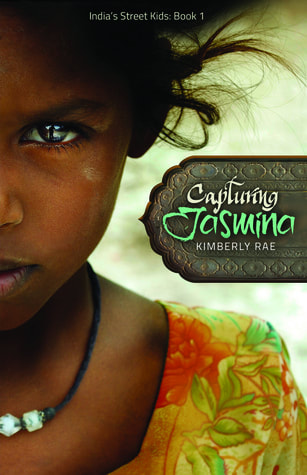Kimberly Rae draws attention to the ongoing trafficking of children in India in her young adult novel Capturing Jasmina. Jasmina was only ten when her father sold both her and her brother Samir to a man promising safety and good education. In reality the siblings end up in a sweatshop slaving over clothes to be sold in America. After three years they manage to escape only to be trafficked a second time. Eventually Jasmina and Samir are separated and Jasmina becomes a street kid.
Whilst living on the streets Jasmina encounters a Christian missionary, Asha, rescuing women from brothels by either offering them a safe place to live or at the very least spiritually, by teaching them about God and Jesus. Intrigued Jasmina follows Asha who then offers to help her too. After having her childhood robbed from her, it seems like Jasmina, with the help of those who trust in God, will get back on her feet again. Despite being a short novel, Rae paints a contrasting image to what the western world is used to. Jasmina finds the concept of a simple toilet baffling. It is not until you hear or see what is happening to innocent people in other parts of the world that you realize there are so many things in life you take for granted. Capturing Jasmina emphasizes how difficult it is to escape once trafficked. In these situations people belong to everyone but themselves. They have no freedom and running away can cause more problems than it solves. The novel also shows what Christians can do to help. Although no one can completely solve the problems, the tiniest piece of aid they can provide is a step in the right direction. It was slightly disappointing that we do not find out what happened to Samir once he was separated from his sister. Jasmina’s first person narrative makes it clear that what she wants most is to be reunited with her family. In a way, although there is a positive ending, not yet finding her brother makes it clear that there cannot always be happy endings. It is not possible to save everyone. Written from a young teenagers point of view makes this book suitable for ages twelve and older. Christians will appreciate the biblical references however there is not too much religion for non-believers or those of other religions to get offended by.
0 Comments
Your comment will be posted after it is approved.
Leave a Reply. |
©Copyright
We are happy for you to use any material found here, however, please acknowledge the source: www.gantshillurc.co.uk AuthorRev'd Martin Wheadon Archives
June 2024
Categories
All
|

 RSS Feed
RSS Feed